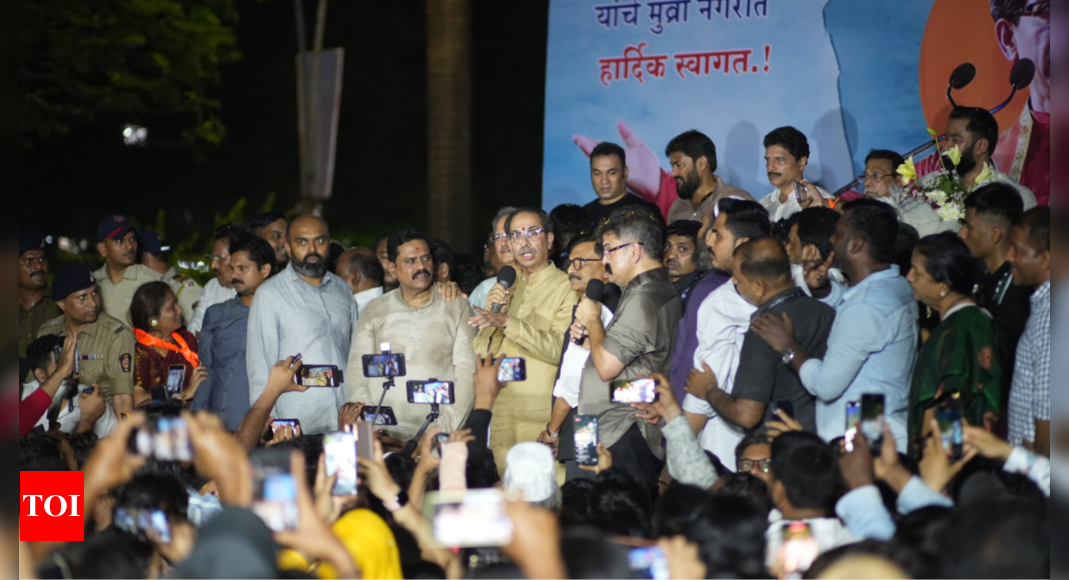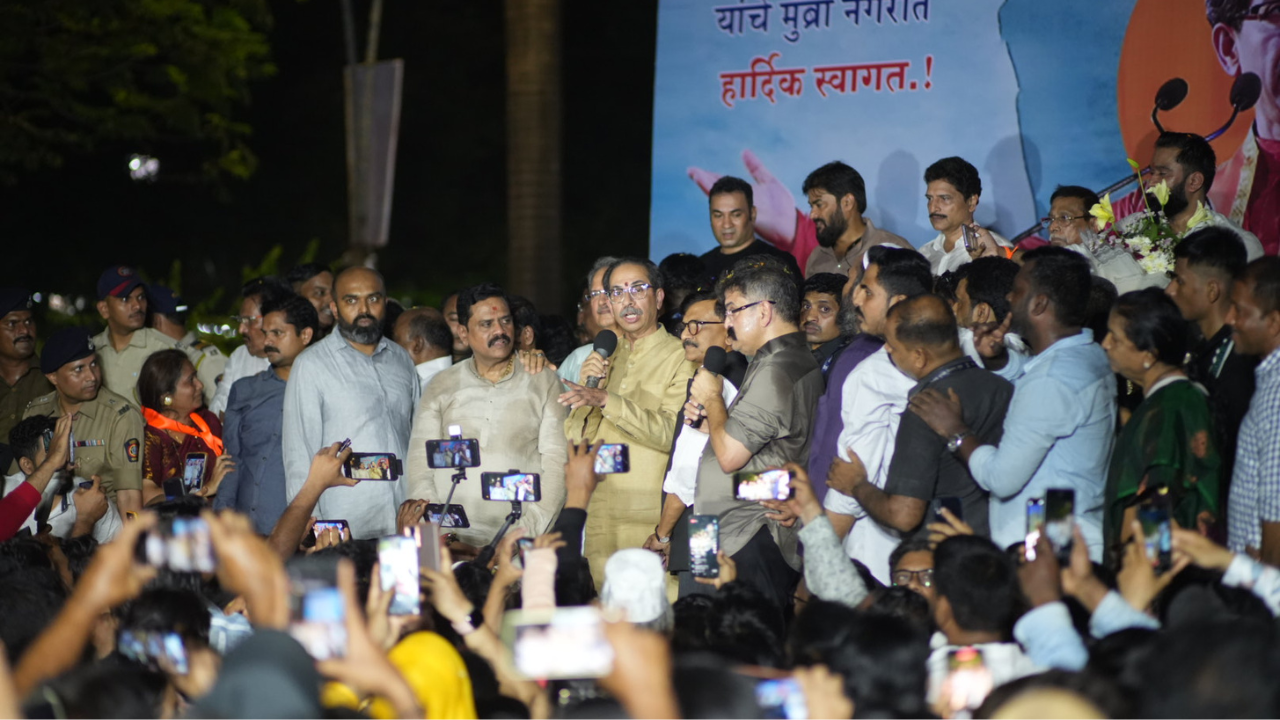[ad_1]
The verdict comes as another big setback for Team Uddhav, though it has the consolation of knowing its MLAs will stay, and means Shinde emerges stronger with government led by him looking stable. Narwekar said he relied on three major things to reach his conclusion: Shiv Sena’s constitution, party’s leadership structure, and its legislative majority. Supreme Court had in May asked Narwekar to decide on pleas for disqualification and, among other things, determine prima facie which was the party.
Maharashtra’s Sena vs Sena crisis: CM Eknath Shinde wins big after speaker Rahul Narwekar’s verdict
Speaker Narwekar went into detail into Sena’s constitution, saying the 1999 document submitted to the EC was a valid one and that the Thackeray group’s contention that the amended constitution of 2018 should be relied on was notacceptable.
Narwekar held June 21, 2022 as the date when rival Sena factions emerged and were brought on record before the Speaker’s office on June 22. He said no organisational elections were held in 2013 and 2018. Narwekar said Uddhav (who was CM in the MVA government ) had no power to remove Shinde following a mutiny in Sena ranks in June 2022.
Uddhav’s faction had claimed that the paksha pramukh’s decision was synonymous with the party’s will and in case of any rift in the leadership structure, the decision of the ‘paksha pramukh’ constituted the will of theparty. Narwekar said, “Shiv Sena’s constitution doesn’t have a post called ‘paksha pramukh’ and he doesn’t have absolute power, this power rests with the ‘rashtriya karyakarini’ (national executive).
The ‘paksha pramukh’ has no absolute power and this power has to be exercised in consultation with the national executive.” Narwekar said the Shinde faction had an overwhelming majority of 37 of 55 MLAs when rival camps emerged on June 21. He said Sunil Prabhu (of Uddhav group) had ceased to be the party’s legal whip on June 21 and had no authority to call a meeting of theparty.
“The will of ‘paksha pramukh’ at the time cannot be said to be the will of the political party. This is to enable intra-party dissent… and Sena’s party structure doesn’t allow any forum to express dissent or dissatisfaction,” Narwekar said. He noted that “Eknath Shinde was validly appointed leader of Shiv Sena in the assembly” and “Bharat Gogawale was validly appointed as chief whip”.
The Speaker said Prabhu “failed to establish the service of whip” & said a comparison of original attendance sheet, produced with the (UBT Sena) affidavit which had a copy of the sheet, revealed the two do not match. “There are glaring discrepancies,” he said.
The first ground on which the UBT faction sought disqualification was the Shinde faction had “become incommunicado”. The Speaker said this was a mere allegation and UBT faction had not put forth any evidence to substantiate it. He said the Shinde faction MLAs had met Milind Narwekar and Ravindra Phatak, both sent by Thackeray, in Surat.
The Uddhav group MLAs also could not be disqualified as the Shinde faction could not issue whips following the due process, the Speakerheld. Narwekar said there was no consensus on which of the constitutions of the Shiv Sena was valid. So he relied on the constitution provided by EC. While Narwekar upheld the 2018 leadership structure presented by the Uddhav faction as valid, he held it was not in conformity with the 1999 constitution. “All the petitions seeking disqualification of MLAs are rejected,” he ruled.
Narwekar also dismissed the disqualification petitions against two independent MLAs and Bacchu Kadu of Prahar Janshakti Party.
[ad_2]
Source link


